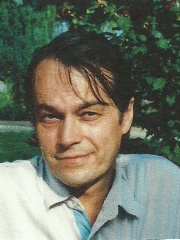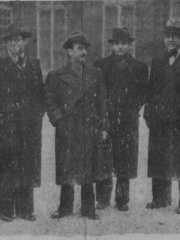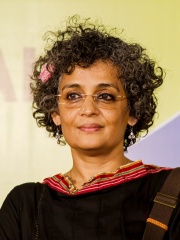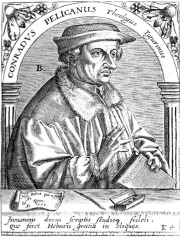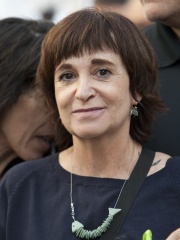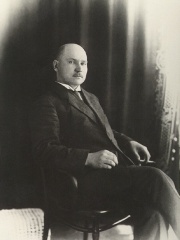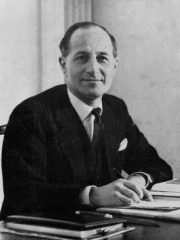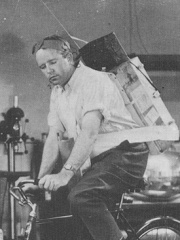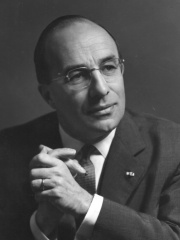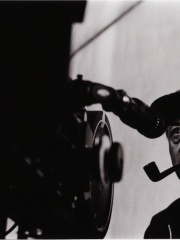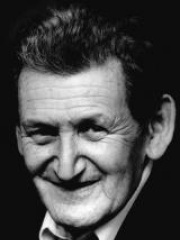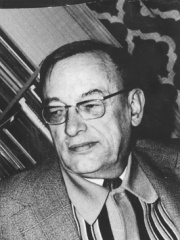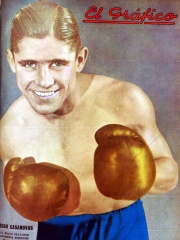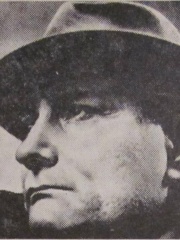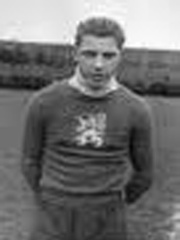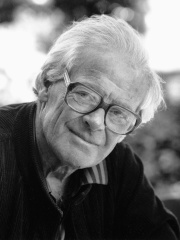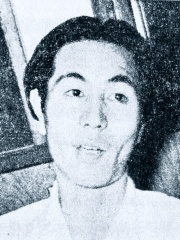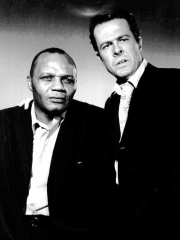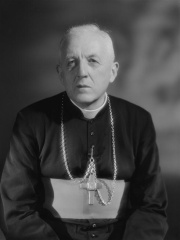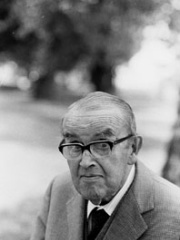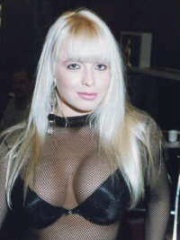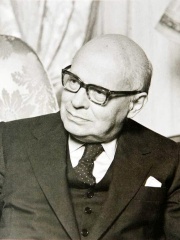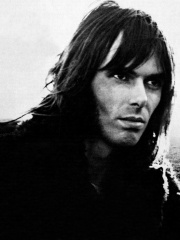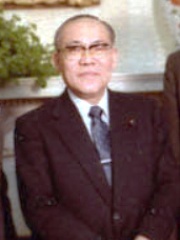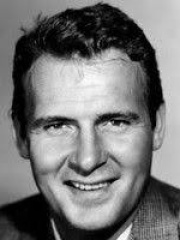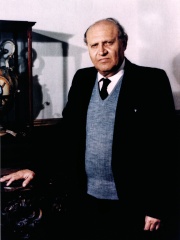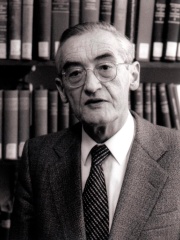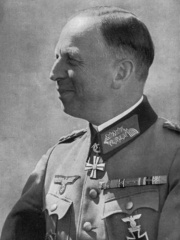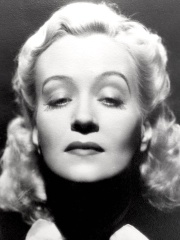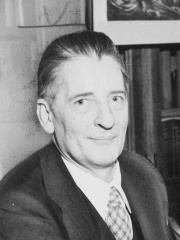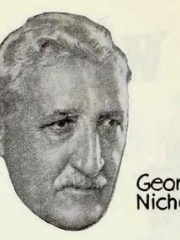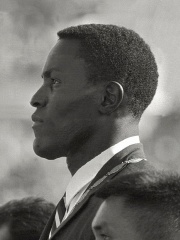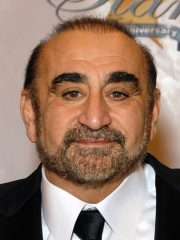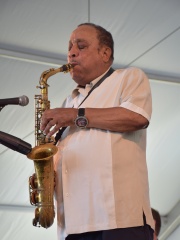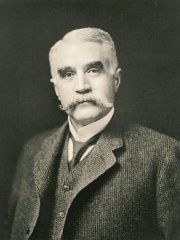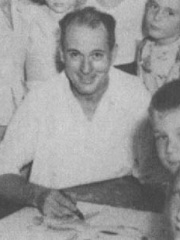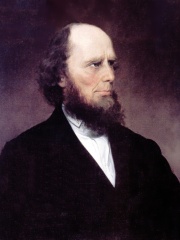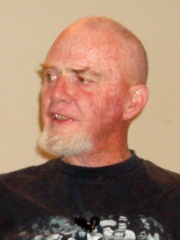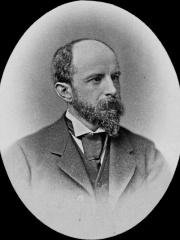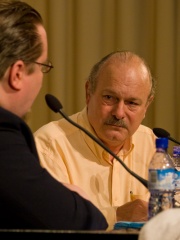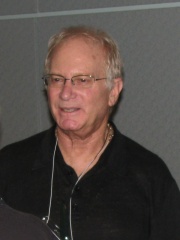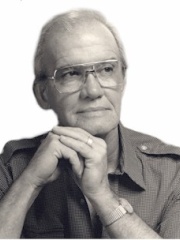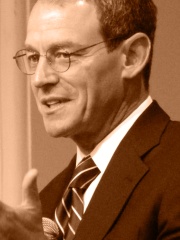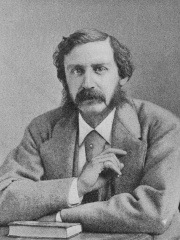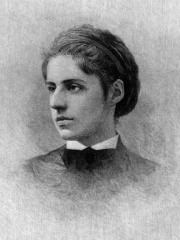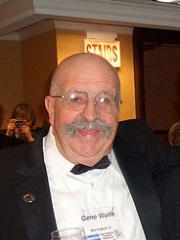Écrivain
Ralph Ellison
1914 - 1994
FR.WIKIPEDIA PAGE VIEWS (PV)
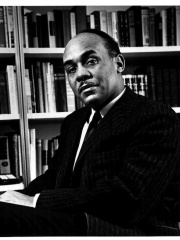
 Ralph Ellison
Ralph Ellison
Sa biographie est disponible en 44 langues sur Wikipédia (en hausse par rapport à 43 en 2024). Ralph Ellison est le 4,019th écrivain le plus populaire (en baisse du 3,989th en 2024), la 5,897th biographie la plus populaire des États-Unis (en baisse du 5,207th en 2019), ainsi que le 450th écrivain des États-Unis le plus populaire.
Memorability Metrics
Page views of Ralph Ellison by language
Among Écrivains
Among écrivains, Ralph Ellison ranks 4,019 out of 7,302. Before him are Ferdinand Bruckner, Bat Ye'or, Savo Kostadinovski, Roger Vitrac, Arundhati Roy, and Abbas Ibn al-Ahnaf. After him are Cui Hao, Konrad Pellikan, Alexander Neckam, Rosa Montero, Oskar Luts, and Abu'l-Fadl Bayhaqi.
Most Popular ÉCrivains in Wikipedia
Go to all RankingsFerdinand Bruckner
1891 - 1958
HPI: 57.97
Rank: 4,013
Bat Ye'or
1933 - Present
HPI: 57.97
Rank: 4,014
Savo Kostadinovski
1950 - Present
HPI: 57.97
Rank: 4,015
Roger Vitrac
1899 - 1952
HPI: 57.96
Rank: 4,016
Arundhati Roy
1961 - Present
HPI: 57.96
Rank: 4,017
Abbas Ibn al-Ahnaf
750 - 808
HPI: 57.96
Rank: 4,018
Ralph Ellison
1914 - 1994
HPI: 57.96
Rank: 4,019
Cui Hao
704 - 754
HPI: 57.96
Rank: 4,020
Konrad Pellikan
1478 - 1556
HPI: 57.96
Rank: 4,021
Alexander Neckam
1157 - 1217
HPI: 57.96
Rank: 4,022
Rosa Montero
1951 - Present
HPI: 57.96
Rank: 4,023
Oskar Luts
1887 - 1953
HPI: 57.96
Rank: 4,024
Abu'l-Fadl Bayhaqi
995 - 1077
HPI: 57.96
Rank: 4,025
Contemporaries
Among people born in 1914, Ralph Ellison ranks 240. Before him are Terence O'Neill, Norman Holter, Jo Cals, Wilhelm Hahnemann, Jack Cardiff, and Jan Kott. After him are Igor M. Diakonoff, Oscar Casanovas, Hovhannes Shiraz, Ehrenfried Patzel, Ralph Erskine, and Akira Ifukube. Among people deceased in 1994, Ralph Ellison ranks 198. Before him are Jersey Joe Walcott, François Marty, Max Petitpierre, Savannah, Carlos Lleras Restrepo, and Nicky Hopkins. After him are Masayoshi Ito, Karl-Heinz Metzner, Charles Drake, Paul Xuereb, Kurt Aland, and Erich Buschenhagen.
Others Born in 1914
Go to all RankingsTerence O'Neill
POLITICIAN
1914 - 1990
HPI: 58.15
Rank: 234
Norman Holter
PHYSICIST
1914 - 1983
HPI: 58.08
Rank: 235
Jo Cals
POLITICIAN
1914 - 1971
HPI: 58.06
Rank: 236
Wilhelm Hahnemann
SOCCER PLAYER
1914 - 1991
HPI: 58.06
Rank: 237
Jack Cardiff
FILM DIRECTOR
1914 - 2009
HPI: 58.01
Rank: 238
Jan Kott
WRITER
1914 - 2001
HPI: 57.98
Rank: 239
Ralph Ellison
WRITER
1914 - 1994
HPI: 57.96
Rank: 240
Igor M. Diakonoff
LINGUIST
1914 - 1999
HPI: 57.89
Rank: 241
Oscar Casanovas
BOXER
1914 - 1987
HPI: 57.86
Rank: 242
Hovhannes Shiraz
WRITER
1914 - 1984
HPI: 57.83
Rank: 243
Ehrenfried Patzel
SOCCER PLAYER
1914 - 2004
HPI: 57.78
Rank: 244
Ralph Erskine
ARCHITECT
1914 - 2005
HPI: 57.75
Rank: 245
Akira Ifukube
COMPOSER
1914 - 2006
HPI: 57.62
Rank: 246
Others Deceased in 1994
Go to all RankingsJersey Joe Walcott
BOXER
1914 - 1994
HPI: 58.36
Rank: 192
François Marty
RELIGIOUS FIGURE
1904 - 1994
HPI: 58.18
Rank: 193
Max Petitpierre
POLITICIAN
1899 - 1994
HPI: 58.11
Rank: 194
Savannah
PORNOGRAPHIC ACTOR
1970 - 1994
HPI: 58.09
Rank: 195
Carlos Lleras Restrepo
POLITICIAN
1908 - 1994
HPI: 57.98
Rank: 196
Nicky Hopkins
SINGER
1944 - 1994
HPI: 57.97
Rank: 197
Ralph Ellison
WRITER
1914 - 1994
HPI: 57.96
Rank: 198
Masayoshi Ito
POLITICIAN
1913 - 1994
HPI: 57.96
Rank: 199
Karl-Heinz Metzner
SOCCER PLAYER
1923 - 1994
HPI: 57.91
Rank: 200
Charles Drake
ACTOR
1917 - 1994
HPI: 57.89
Rank: 201
Paul Xuereb
POLITICIAN
1923 - 1994
HPI: 57.85
Rank: 202
Kurt Aland
HISTORIAN
1915 - 1994
HPI: 57.83
Rank: 203
Erich Buschenhagen
MILITARY PERSONNEL
1895 - 1994
HPI: 57.78
Rank: 204
In États-Unis
Among people born in États-Unis, Ralph Ellison ranks 5,897 out of NaN. Before him are Ona Munson (1903), Maxwell Perkins (1884), George Nichols (1864), Eric S. Raymond (1957), Rafer Johnson (1935), and Ken Davitian (1953). After him are Lou Donaldson (1926), Charles F. Brush (1849), Diahnne Abbott (1945), Al Taliaferro (1905), Cynthia Rhodes (1956), and John Lynch (1952).
Others born in États-Unis
Go to all RankingsOna Munson
ACTOR
1903 - 1955
HPI: 57.97
Rank: 5,891
Maxwell Perkins
BUSINESSPERSON
1884 - 1947
HPI: 57.97
Rank: 5,892
George Nichols
ACTOR
1864 - 1927
HPI: 57.97
Rank: 5,893
Eric S. Raymond
COMPUTER SCIENTIST
1957 - Present
HPI: 57.96
Rank: 5,894
Rafer Johnson
ATHLETE
1935 - 2020
HPI: 57.96
Rank: 5,895
Ken Davitian
ACTOR
1953 - Present
HPI: 57.96
Rank: 5,896
Ralph Ellison
WRITER
1914 - 1994
HPI: 57.96
Rank: 5,897
Lou Donaldson
MUSICIAN
1926 - 2024
HPI: 57.96
Rank: 5,898
Charles F. Brush
ENGINEER
1849 - 1929
HPI: 57.96
Rank: 5,899
Diahnne Abbott
ACTOR
1945 - Present
HPI: 57.96
Rank: 5,900
Al Taliaferro
COMIC ARTIST
1905 - 1969
HPI: 57.95
Rank: 5,901
Cynthia Rhodes
ACTOR
1956 - Present
HPI: 57.95
Rank: 5,902
John Lynch
POLITICIAN
1952 - Present
HPI: 57.95
Rank: 5,903
Among Écrivains In États-Unis
Among écrivains born in États-Unis, Ralph Ellison ranks 450. Before him are Charles Grandison Finney (1792), Michael Blake (1945), Henry Adams (1838), Joe Haldeman (1943), Elizabeth Strout (1956), and Syd Field (1935). After him are Og Mandino (1923), Daniel Silva (1960), Gary Chapman (1938), Bret Harte (1836), Emma Lazarus (1849), and Gene Wolfe (1931).
Charles Grandison Finney
1792 - 1875
HPI: 58.21
Rank: 444
Michael Blake
1945 - 2015
HPI: 58.21
Rank: 445
Henry Adams
1838 - 1918
HPI: 58.15
Rank: 446
Joe Haldeman
1943 - Present
HPI: 58.14
Rank: 447
Elizabeth Strout
1956 - Present
HPI: 58.09
Rank: 448
Syd Field
1935 - 2013
HPI: 57.99
Rank: 449
Ralph Ellison
1914 - 1994
HPI: 57.96
Rank: 450
Og Mandino
1923 - 1996
HPI: 57.94
Rank: 451
Daniel Silva
1960 - Present
HPI: 57.90
Rank: 452
Gary Chapman
1938 - Present
HPI: 57.88
Rank: 453
Bret Harte
1836 - 1902
HPI: 57.86
Rank: 454
Emma Lazarus
1849 - 1887
HPI: 57.86
Rank: 455
Gene Wolfe
1931 - 2019
HPI: 57.84
Rank: 456


